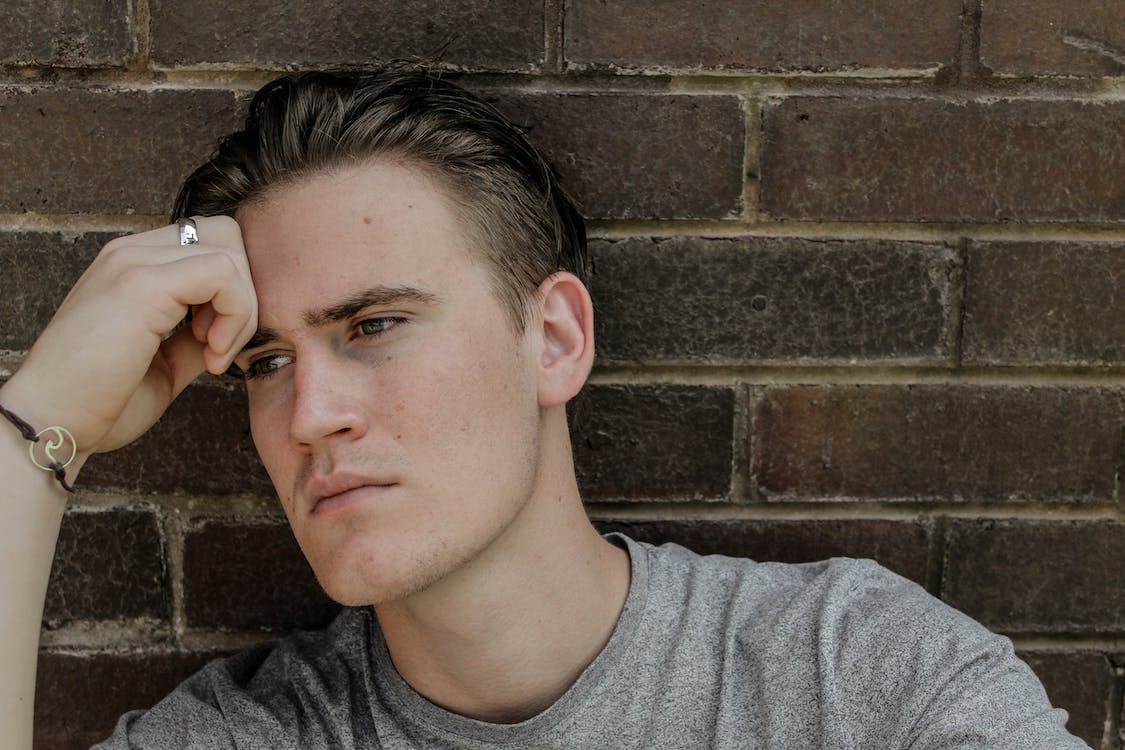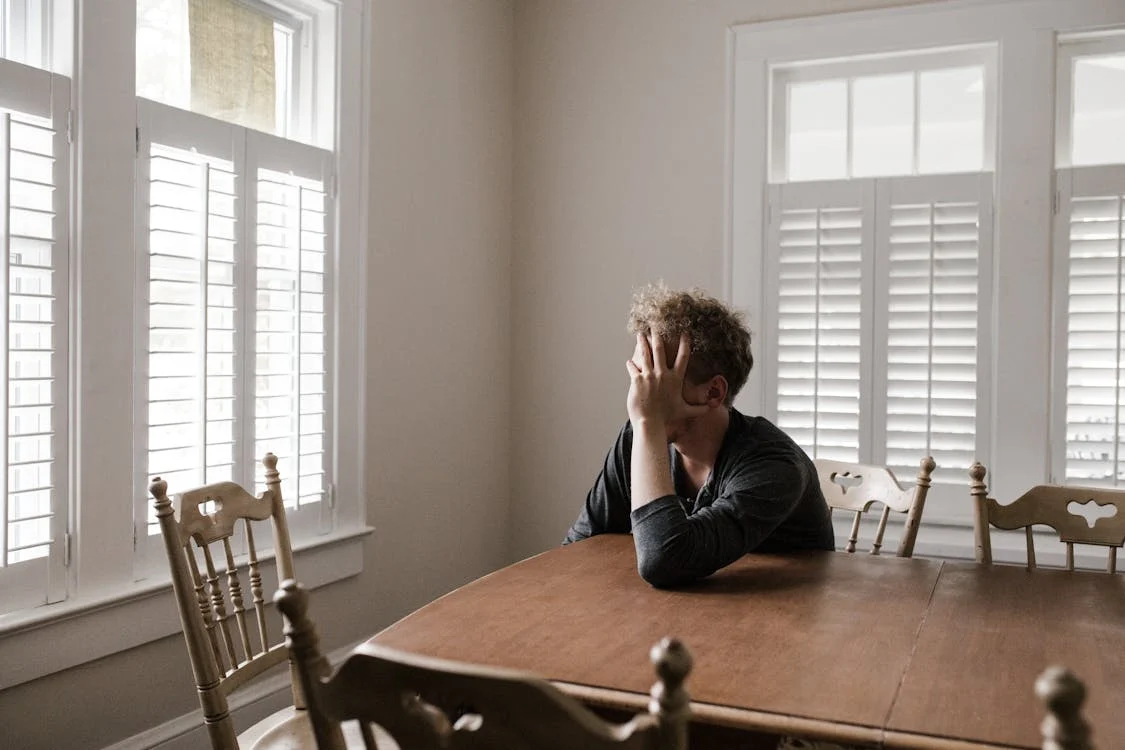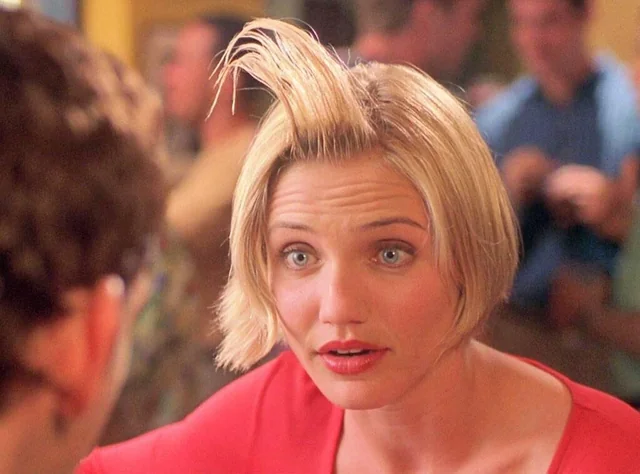When Should I Give Up on Acting?
Four signs that will let you know it’s time to quit
(By Javier Guerra)
 (Photo: Mike Greer | Pexels)
(Photo: Mike Greer | Pexels)
Be a patient actor. Be a determined actor! Believe in yourself and follow your dream!
But there’s truly no shame in reevaluating your life choices, at some point, and deciding you’d rather do something else for a change. That’s the natural evolution of things.
Heck, it’s possible that every talent agent and every casting director you’ve ever met was once an aspiring actor or actress. At a certain point, they pivoted to a new career.
You can, too, if that’s where your heart is. Here are 4 signs it may be time to quit.
#1: You hate auditioning
 (Photo: Liza Summer | Pexels)
(Photo: Liza Summer | Pexels)
One of the easiest ways to know it’s time to hang up your acting boots is when you lose your love for auditioning. Auditioning is a high-effort, low-reward endeavor that can wear you down faster than anything!
Do you hate when your agent sends you an audition breakdown? Do you lament the fact that you must give up a portion of your day to do an audition that you “probably won’t even get.”
If that sounds like you, then perhaps you have outgrown your original dream. That doesn’t necessarily mean that you don’t enjoy acting anymore. It may just mean that you are tired of the audition-rejection paradigm.
#2: Your other passions have become more appealing to you

A young actress thinks about acting all the time. She eats it, sleeps it and breathes it.
But when she begins to think about motherhood more than acting, that’s a clear indication that it may be time for a break.
The same is true for men. When you begin dreaming about pursuing a different profession and going down a new career path, it may be time to rethink your career and life goals.
#3: You get lazy
 (Photo: Ketut Subiyanto | Pexels)
(Photo: Ketut Subiyanto | Pexels)
You began your acting career with the intensity of a fighter jet turning on its afterburners. You were Top Gun, full speed ahead.
But now, you’re lazy! You don’t hustle to your acting class the way you used to. You don’t market yourself with the same vigor. You don’t send out your headshot as often as you did in the past.
Maybe you’ve simply gotten a little lax and lazy. Or maybe, your heart’s just not into it anymore.
#4: You’re asking if you should quit

(Photo: Andrea Piacquadio | Pexels)
Lastly, if you’re asking if you should quit, maybe it’s time to consider quitting. Pure and simple.
If you’re even asking the question in the first place, you should evaluate why you’re asking the question. Maybe it’s the temporary feeling of dejection that all actors get from time-to-time. Or, maybe it’s your soul telling you to move in a new direction.
 (Photo: Andrew Neel | Pexels)
(Photo: Andrew Neel | Pexels)
The dream of becoming a successful actor is powerful, but the path is steep, competitive, and often unforgiving. Studies and industry insiders suggest that approximately 90% of actors quit before achieving sustainable careers. The reasons vary—financial instability, emotional exhaustion, changing life priorities, and the harsh realities of the business all contribute to the high attrition rate.
In Hollywood alone, the Screen Actors Guild (SAG-AFTRA) has over 160,000 members, but only a small fraction earn enough from acting to support themselves. The U.S. Bureau of Labor Statistics consistently reports that the median annual income for actors is shockingly low—meaning that many cannot rely solely on acting to make a living.

Several talented performers have chosen to leave acting, either temporarily or permanently:
Rick Moranis, beloved for roles in Ghostbusters and Honey, I Shrunk the Kids, stepped away from acting in the 1990s to raise his children after his wife passed away.
Mara Wilson, child star of Matilda and Mrs. Doubtfire, retired from acting as a teenager, later explaining that the industry’s demands on young performers were overwhelming and unhealthy.
Cameron Diaz surprised fans when she announced in 2018 that she had retired from acting, citing the exhausting lifestyle and her desire to focus on herself and her family.
Jack Gleeson, who played the villainous King Joffrey on Game of Thrones, chose to leave acting after the show, feeling that the profession no longer brought him joy.
Each of these individuals faced unique circumstances, but their choices illustrate that even successful actors sometimes decide the sacrifices aren’t worth the rewards.
Financial Insecurity:
Most actors are freelancers, often juggling side jobs to make ends meet. The inconsistency of gigs, coupled with the high cost of living in entertainment hubs like Los Angeles or New York, makes long-term survival challenging.
Mental and Emotional Toll:
Constant rejection is part of the job. Auditions can be grueling, and being turned down becomes a frequent, often daily experience. Over time, this can chip away at self-esteem and mental health.
Lifestyle Realities:
Acting requires more than talent—it demands networking, self-promotion, and availability at odd hours. Family commitments or a desire for a more stable life often lead actors to pursue other careers.
Shift in Priorities:
Many actors find new passions or return to old ones. Teaching, writing, or opening a business often provide the personal satisfaction and stability that acting did not.
Statistically, only 2% of actors are able to make a living solely from their craft. This doesn’t necessarily mean becoming famous—it means earning a reliable, stable income. This 2% often includes working actors you may not recognize but who consistently land roles in TV, film, theater, or commercials.
Examples include:
Character actors like Stephen Tobolowsky (Groundhog Day) and Margo Martindale (Justified) who consistently find work across different mediums.
Commercial actors who become the faces of major brands and enjoy a stable, if less visible, career.
Many household names came very close to quitting before their big break:
Chris Pratt was living in a van in Hawaii, waiting tables at Bubba Gump Shrimp Co., when he was discovered by a director.
Jon Hamm struggled for nearly a decade in Hollywood, working as a set dresser and waiter before finally landing Mad Men at age 36.
Viola Davis faced years of limited roles and racial barriers, but her persistence led to an Academy Award, an Emmy, and a Tony.
These stories highlight the critical role that perseverance plays. Timing, luck, and relentless effort often make the difference between giving up and succeeding.
Absolutely not. Walking away from acting is often a courageous choice. Recognizing that your goals, interests, or circumstances have changed is not a sign of failure—it’s a step toward authenticity and fulfillment.
Many ex-actors go on to successful second careers:
Danica McKellar (The Wonder Years) became a mathematician and author.
Peter Ostrum, best known as Charlie from Willy Wonka & the Chocolate Factory, became a veterinarian.
Shirley Temple, one of the most iconic child actors ever, went on to a distinguished career as a diplomat.
These individuals demonstrate that there is life—and often great success—after acting.
There’s wisdom to be gained from actors who decided to step away:
Value Your Mental Health: No dream is worth sacrificing your emotional well-being.
Diversify Your Skills: Many actors maintain multiple income streams. Acting doesn’t have to be all or nothing.
Know When to Pivot: Sometimes the industry changes, or you change. Being able to recognize when it’s time for a new path is a sign of strength.
For those determined to make acting a lifelong career, it’s crucial to approach it strategically:
Train constantly. Acting is a craft, and continued education makes a difference.
Network wisely. Connections open doors more often than raw talent.
Stay financially prepared. Build savings, plan for dry spells, and keep side gigs as necessary.
Manage expectations. Know that success might look different than fame—consistent work is an achievement in itself.
As actor Bryan Cranston once said,
“You need to define success for yourself, not let the business define it for you.”
Ultimately, success in acting—as in any field—is a combination of preparation, perseverance, resilience, and sometimes, letting go when the time is right.

The acting world is fiercely competitive. Thousands of talented individuals pour into cities like Los Angeles and New York each year, all hoping to become the next big star. However, the reality is that only a small fraction actually make it.
One famous example is Jon Hamm, who spent over a decade struggling before landing his breakout role in Mad Men. Before that, he faced countless rejections and had to work odd jobs to survive. Most people don’t realize how relentless and drawn-out the journey can be, and many give up long before success arrives.
While natural talent helps, acting is a craft that must be honed. Many aspiring actors jump into auditions without any real training. They misunderstand the complexity of conveying authentic emotion or how to adapt their performances to different directors’ visions.
Consider Jennifer Lawrence—despite her natural instincts, she constantly worked with acting coaches, even after achieving fame, to refine her technique. Those who don’t prioritize training often stagnate and fall behind their peers who invest in professional development.
Acting is not just emotionally demanding—it’s financially brutal. Classes, headshots, reels, travel for auditions, and time spent unpaid between gigs create major pressure.
Chris Pratt famously lived in a van in Maui before he got his first acting break. He survived by waiting tables and living frugally. Without significant financial stability or external support, many actors eventually leave the industry because they simply can’t afford to continue pursuing their passion.
Acting demands an incredibly thick skin. Rejection is a daily part of life for most actors. Sometimes, it’s not even about talent—it’s about appearance, connections, or simple luck.
Emma Stone openly shared that she was rejected hundreds of times before making it big. Even though she had talent, directors often passed her over for roles for reasons beyond her control. The constant “no’s” can shatter confidence, and many quit because they can no longer handle the emotional weight.
Unlike traditional jobs, acting does not guarantee steady work. Even successful actors sometimes go months—or years—between major roles. For most, gigs are sporadic and pay very little, especially at the beginning.
Bryan Cranston, before starring in Breaking Bad, had a career filled with small guest roles and commercial work. It took him decades to secure a defining role. Many actors find the unpredictability exhausting and unsustainable, leading them to seek more stable careers.
Typecasting can destroy an actor’s career potential. Once associated with a certain type of character, it can be almost impossible to land diverse roles.
Mark Hamill struggled post-Star Wars because casting directors could only see him as Luke Skywalker. It took years for him to re-establish himself, notably in voice acting as The Joker in Batman: The Animated Series. Not everyone manages to escape typecasting’s grip.
Talent is only part of the formula; who you know matters immensely. Casting directors often favor familiar faces or personal recommendations.
Mindy Kaling initially created her own opportunities by writing and producing projects, which allowed her to bypass traditional gatekeepers. Actors without strong networks often remain invisible no matter how talented they are.
The acting industry is constantly evolving. Today, self-tapes, social media presence, and personal branding are essential. Actors who resist these changes risk becoming obsolete.
For instance, Sydney Sweeney leverages social media to complement her acting career, boosting her visibility. Those who refuse to adapt to new technology, platforms, or trends miss out on vital opportunities.
Many start acting with the dream of instant fame and fortune, only to realize that fame often comes after years (or decades) of hard work.
Steve Carell spent years in theater, small television parts, and commercial work before finally achieving widespread fame with The Office. Those who expect quick success are often disillusioned and abandon their careers prematurely.
Sometimes, it all comes down to being in the right place at the right time. Luck is an uncontrollable but essential factor.
Chris Hemsworth almost missed his audition for Thor—his brother Liam initially auditioned and caught the casting director’s attention, leading them to also look at Chris. Without that twist of fate, his career might have taken a very different path. Those who don’t catch that lucky break often fall through the cracks despite their efforts.
You Might Also Like:
Does Height Matter for Acting?



